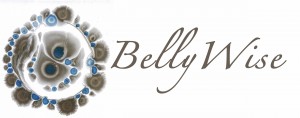The Benefits of Breastfeeding – part 3 (for society)
By katewright on Mar 05, 2013 in Breastfeeding, Health and Nutrition, Uncategorized Comments: 0. Tags:Adding to the wonder and usefulness of breastmilk (for babies and for moms), let’s delve into how breastfeeding benefits society as a whole. The advantages of breastfeeding are far-reaching–starting small in the workplace, growing to the economy, and reaching all the way out into the environment.
In March 2010, Congress passed the Patient Protection and Affordable Care Act, mandating employers provide “reasonable break time” as well as private areas for pumping. Employers benefit greatly when they provide a mother/baby friendly environment for their employees. By implementing a lactation support program that would include a designated, private space for pumping (not the bathroom or storage closet), refrigeration for storing breastmilk, a handwashing station, and adequate break time, breastfeeding moms will have the necessary support to continue breastfeeding their babies for as long as they would like. This will result in babies who are sick less often, lowering both employee absenteeism and company health care costs–breastfed infants require fewer sick visits, prescriptions, and hospitalizations. In addition, these employers would experience a reduction in the employee turnover rate as well as increased morale and productivity within the workplace. Companies with lactation support programs show a 94% employee retention rate. This statistic is rather striking as the national average boasts a mere 59% employee retention rate. More than 50% of moms with infants work outside of the home. Employers who offer these moms support will inherently raise their employees’ sense of job satisfaction and thereby a willingness and desire to remain. The financial benefit to a supportive employer is clear – for every $1 spent on a valid lactation support program, the company will experience a $2-3 return.
A focus on developing and implementing strategies to increase the number of breastfeeding moms would greatly impact the national economy. Currently, only 15% of moms in the United States exclusively breastfeed for at least six months. If 90% of moms met this goal, the nation would save $13 billion every year. This calculation does not include a reduction in cost related to employee absenteeism from work or adult deaths from diseases acquired in childhood. Private and government insurers spend a minimum of $3.6 billion every year treating medical conditions that are preventable with breastfeeding. In addition, if 90% of moms in the United States exclusively breastfeed for at least six months, close to 1,000 infant deaths could be prevented.
Human milk does not require containers or paper; it does not use fuel to prepare or transportation to deliver. 80,000 breastfeeding moms save 17,200 tons of tin in a span of six months. This amount of tin only accounts for formula containers. We must also consider the plastic waste involved in formula cans and bottle supplies. Without any effort, breastfeeding greatly reduces the world’s carbon footprint and saves our precious global resources and energy.
The health benefits to babe and mom are astounding as are the economic and environmental improvements that breastfeeding can have both within our society and on a global basis. Improving worldwide rates of breastfeeding will inherently improve our lives, whether we are the ones to give or take the milk or not.
Breastfeeding and the Use of Human Milk. Pediatrics. 2012; 129(3) Free full text
Center for Disease Control and Prevention. Breastfeeding.
Coalition for Improving Maternity Services. Breastfeeding is Priceless. There is no Substitute for for Human Milk.
La Leche League. A Quick Look at Breastfeeding’s Most Revolutionary Year Yet.
La Leche League. What are the Benefits of Breastfeeding My Baby?
United States Breastfeeding Committee. Breastfeeding Saves Dollars and Makes Sense.
U.S. Department of Health and Human Services Office on Women’s Health. Why Breastfeeding is Important.
